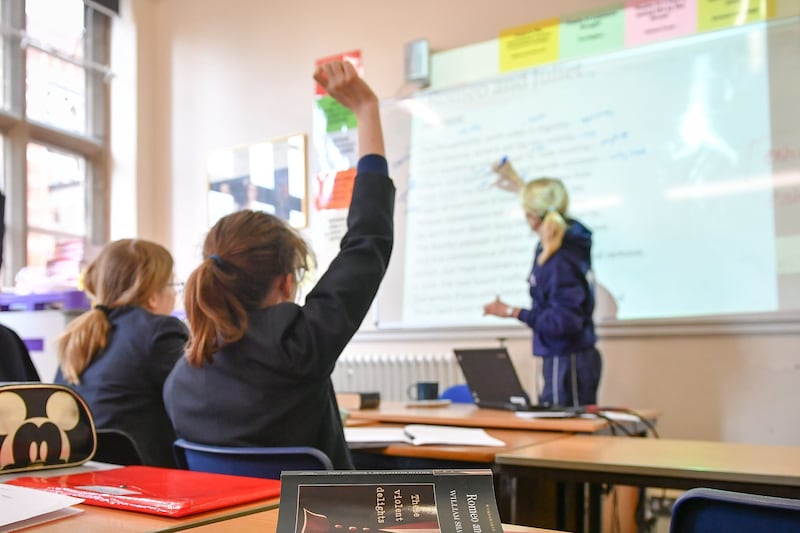EMPLOYERS and unions must move swiftly to resolve industrial action which has been in place in schools for six years, principals have urged.
Unions rejected a pay offer that would see teachers receive no rise for 2015/16, and a 1 per cent cost of living uplift for 2016/17.
Many had been involved in action short of a strike before that as part of a campaign on pay, pensions, conditions of service and workload.
Part of the current action involves teachers refusing to cooperate with inspectors.
The Association of School and College Leaders (ASCL), representing principals, deputies and business managers of state-funded and independent schools, is now calling for an end to the action.
At its annual conference in Templepatrick, Northern Ireland president Dermot Mullan said there should be more urgency and determination from both sides to find a solution to the impasse "which has been slowly stifling teachers’ professional development and school improvement work over the past six years".
While fully supporting a pay rise for all teachers and support staff, Mr Mullan said he regretted a lack of substantial negotiations.
"Schools in Northern Ireland have been faced with declining budgets, fewer teachers, area planning, meeting the Entitlement Framework, the introduction and teaching of new GCSE and GCE specifications, amidst industrial action by the teachers' unions on assessment, workload and pay and conditions." he said.
"Public pay policy must be more flexible and teachers must be given a decent increase which addresses the years of real-term cuts which the profession has suffered. Any pay increases must be funded from central resources rather than taken from existing and declining school budgets."
Mr Mullan added: "Unions and management side must sort out the difficulties, otherwise schools will be left a culture of labour relations which will be invidious and negative for many years to come. This is not in the interests of learners, staff and society."








